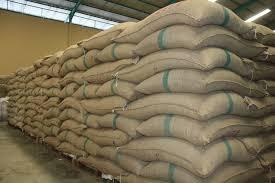Unlocking Zimbabwe’s Agricultural Future Through the Cooperative Debentures Exchange (CDE))

Zimbabwe has unveiled a bold US$1.4 billion agricultural investment package, positioning itself to transform seven high-impact value chains—blueberries, dairy, beef, maize, sunflowers, soyabeans, and poultry. Announced at the Africa Food Systems Forum in Dakar, Senegal, the investment roadmap highlights how the country intends to meet domestic demand while securing stronger positions in lucrative export markets.
While this investment drive seeks traditional global financiers, an equally powerful opportunity lies in mobilising capital through cooperative financing mechanisms, particularly the Cooperative Debentures Exchange (CDE).
Why the CDE Fits the Strategy
The CDE is designed to channel investments into cooperatives—structured groups of farmers, processors, and value chain players. Unlike contract farming models that often leave producers vulnerable, cooperative financing through debentures gives farmers ownership, bargaining power, and long-term sustainability.
The proposed agricultural funding breakdown—maize (US$468 million), soyabeans (US$403 million), sunflower (US$251.9 million), blueberries (US$23.7 million), beef (US$45.2 million), dairy (US$71.4 million), eggs (US$15.1 million), and broilers (US$143.3 million)—aligns perfectly with sectors where cooperatives are already active. By issuing debentures on the CDE, these groups can attract investors directly into their value chains.
How It Works
-
Farmers and agribusiness cooperatives issue debentures on the CDE.
-
Local and diaspora investors subscribe to these securities, confident in commodity-backed structures.
-
Funds are channelled into production, processing, and market access.
-
Investors earn returns from both domestic supply and export contracts secured by the cooperative.
This model builds on Zimbabwe’s existing Agriculture Food Systems and Rural Transformation Strategy (AFSRTS) but leverages inclusive financing tools that align with the cooperative ethos.
The Bigger Picture
Attracting global financiers is important, but broad-based capital mobilisation through the CDE ensures that Zimbabwe’s agricultural transformation is rooted in local participation. Diaspora communities, regional cooperatives, and African institutional investors can all become part of this growth story—not just multinational corporations or bilateral donors.
By embedding cooperative finance into the US$1.4 billion agricultural package, Zimbabwe can secure not only the capital it needs but also long-term ownership and resilience in its food systems.

- Market Reports
- Economic
- Social and Development
- Communication, Marketing & Success Stories
- Regulation
- Autre
- SADC
- African Union



